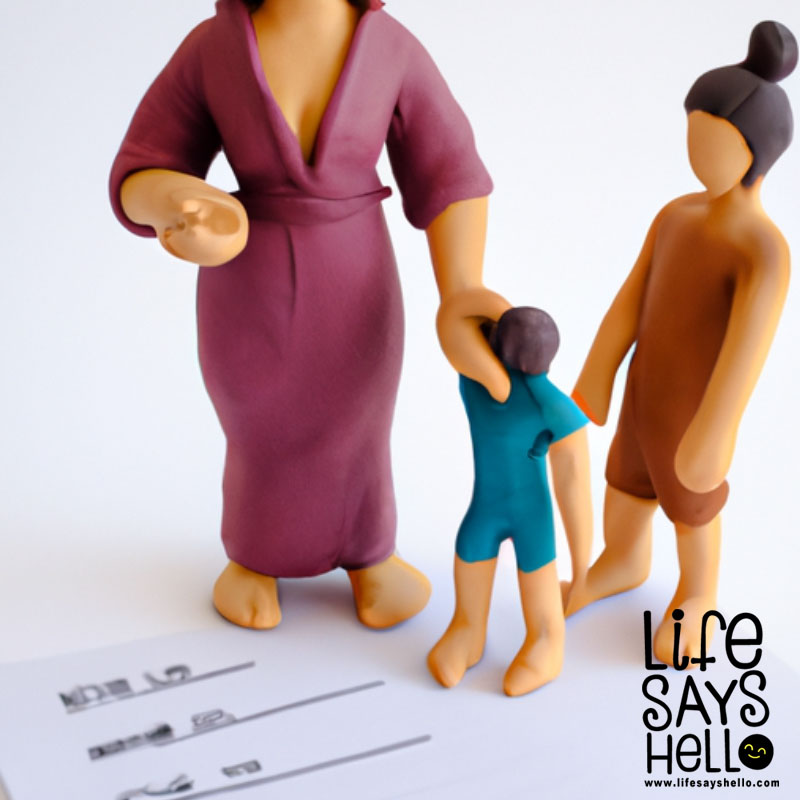Why Is My Baby Crying at Night? 9 Reasons and Tips to Soothe Them

The sound of your baby crying and screaming when you just want to sleep is one of the hardest parts of parenting. But don’t worry - night wakings and crying are normal for all babies. Understanding the reasons behind the tears and having tricks to soothe your little one will help you get through this challenging phase.
When your baby cries at night it can be frustrating, tiring, and stressful. You just want to get some shut eye, but your bundle of joy has other plans. We’ve all been there!
It helps to remember that your baby isn’t crying to upset you on purpose. Crying is their main form of communication, especially in these early months. Your infant is crying out for a need to be met - whether it’s hunger, discomfort from a wet diaper, or just wanting your comfort.
This article will outline the most common reasons babies cry at night and give you tips to calm your child so everyone can get some sleep. We’ll also cover when you should see your doctor about excessive crying.
While dealing with a screaming baby in the middle of the night tests your patience, remember this too shall pass! With time your little one will start sleeping for longer stretches.
Why Is My Baby Crying at Night? 9 Reasons
Understanding what could be causing your baby distress during the night is key. Here are the most common reasons infants wake up crying:
1. Hunger
Hunger and the need to eat is one of the top reasons babies cry at night, especially with newborns. Their tiny tummies can’t hold much, so they need to refuel frequently.
Newborns in those early weeks will wake every 2-3 hours on average needing to breastfeed or take a bottle. Their small size and quick metabolism means they run out of fuel fast.
As babies get older between 3-6 months, they start to sleep for longer stretches at night because they can take more milk at each feeding. But hunger is still a major cause of waking at this age.
Tip: Expect frequent wakings for feedings, especially in the early months. Have diapers and extra milk or formula on hand to quickly tend to their hunger cries.
2. Wet or Soiled Diaper
A wet or dirty diaper can make your little one very upset in the middle of the night! They don’t like the feeling of being wet or soiled when trying to sleep any more than you would.
Some babies even sleep through a dirty diaper and only wake up once it starts to really bother them.
Tip: Get in the habit of checking their diaper first when they cry at night. Change wet or dirty diapers promptly to help them settle back to sleep.
3. Discomfort from Temperature
Babies can’t regulate their body temperature well. They rely on you to keep them comfortable.
If your baby is too hot or too cold while sleeping, it can wake them up in discomfort. Signs your little one is too hot include flushed cheeks and sweaty hair.
Tip: Dress your baby appropriately for the room temperature and avoid over-bundling. Place a fan nearby or adjust the thermostat to maintain a comfortable temperature.
4. Teething Pain
The pain and discomfort from teething often disturbs a baby’s sleep. Teething typically starts around 6 months but can begin as early as 3 months.
Common signs of teething are excessive drooling, chewing on hands and toys, swollen gums, and disrupted sleep patterns.
Tip: Gently rub their gums with a clean finger or give them a cool teething toy or frozen washcloth to chew on. Talk to your doctor about appropriate pain relief.
5. Illness
When babies are sick with a cold, ear infection, virus or other illness, they tend to cry more including during the night.
Their little bodies are working hard to fight off the infection which can cause discomfort and restless sleep.
Tip: Look for fever, coughing, congestion or other symptoms. Call your doctor if your baby seems ill. Use saline drops and a humidifier to ease congestion.
6. Separation Anxiety
Around 6-12 months, separation anxiety and stranger anxiety can set in. Babies realize they are separate from mom and dad which causes distress.
They may start crying at bedtime or wake up at night crying hysterically for you. They are upset that you are not right there when they wake.
Tip: Offer comfort through routines. Give them a lovey or blanket with your scent. Use a sound machine. Start sleep training if needed. Reassure them you are still there.
7. Nightmares
Vivid dreams and nightmares can startle babies awake. They may occur as babies’ imaginations and dreams become more active around 9 months.
Your baby may wake up crying, frightened and seeking comfort after a scary dream. Dreams about falling are common sources of nightmares.
Tip: Comfort your baby after a nightmare by holding, rocking and reassuring them. Introduce a night light and keep sleep surroundings familiar.
8. Colic
Colic is intense, prolonged crying in infants under 3 months old without any medical cause. Colicky babies cry more than 3 hours a day, 3 days a week, for 3 weeks.
The crying often increases in the evening, so colic can disrupt sleep patterns. The exact causes are still unclear though gas, hormones and digestion may play a role.
Tip: Colic peaks at 6 weeks and improves by 3-4 months. Hold your baby during crying episodes, go for walks or drives to soothe them. Talk to your doctor about solutions.
9. No Apparent Reason
Sometimes as frustrating as it is, babies simply cry for no reason we can discern. You’ve fed them, changed their diaper, and comforted them, but they still cry.
Babies can get overwhelmed by stimuli and have trouble self-soothing. The crying is their way of releasing stress.
Tip: Employ white noise, swaddling, pacifiers and other calming techniques. Stay patient - the phase will pass. Take breaks if you need them.
Now that we’ve covered the major reasons your baby may be crying at night, let’s talk about ways to soothe them and get rest.
Tips to Soothe Your Crying Baby at Night
When your baby wakes up crying hysterically at 3 AM, your first instinct may be to become frustrated. But take some deep breaths and go through this checklist to try and comfort them:
Check for hunger: Offer your breast or a bottle to see if they are crying from hunger. Feed them if needed.
Change diaper: Check their diaper and change promptly if wet or soiled.
Adjust temperature: Make sure they aren’t too hot or cold. Add or remove blankets accordingly.
Try rocking/bouncing: The motion is soothing and reminds them of the womb.
Offer a pacifier: Sucking is comforting and pacifiers help babies self-soothe.
Try swaddling: Securely wrapping in a blanket provides comfort and security.
Play white noise: Calming shushing sounds can lull them back to sleep.
Give a warm bath: Warm water before bed relaxes babies and makes them sleepy.
Sing lullabies: Soft, rhythmic songs in a soothing voice can ease crying.
Take a walk outside: Fresh air and movement may provide a change of scenery.
Give a gentle massage: Lightly massaging their arms, legs and back is calming.
Maintain bedtime routine: Consistent activities signal sleep time.
Let them cry briefly: If you’ve met their needs, it’s OK to wait 5-10 minutes before responding.
Take breaks when needed: It’s OK to step away and let someone else take over for a bit.
See your doctor if crying is excessive: Rule out medical issues like reflux or allergies.
I know it can be extremely difficult to stay calm when operating on little sleep. But resist the urge to become angry with your baby. Remember, they are crying because they need you. With time and consistency, sleep patterns will improve.
When Should I See the Doctor for Night Crying?
Occasional crying at night is normal for all babies, especially under 1 year old. But if your baby’s crying seems excessive or concerning, see your pediatrician.
Signs to talk to your doctor include:
- Crying lasts over 3 hours a day on multiple days
- Crying increases and is inconsolable
- Crying sounds strained or piercing
- Baby seems in pain while crying
- Crying stops them from feeding
- Vomiting or difficulty breathing
- Fever over 100.4 F (38 C)
- Lethargy, paleness, weakness
- Persistent coughing, congestion
- Diarrhea or blood in stool
- Rash, swelling, or bruises
While some crying is expected, excessive, inconsolable crying can be a sign of issues like acid reflux, food allergies, or a medical problem. Your pediatrician can examine your baby and rule out any underlying causes.
If your baby seems healthy but cries excessively, they may have colic. While frustrating, colic is temporary and improves on its own by 3-4 months old. In the meantime, work on soothing techniques and take breaks.
When Will My Baby Start Sleeping Through The Night?
If you’re desperate for a full night’s sleep, when can you expect your baby to sleep through the night? Unfortunately, there is no set timeline since each baby is different. But here are some general guidelines:
Newborns: Waking every 2-3 hours is the norm, including to feed. Don’t expect long stretches.
3 months: Sleeps 4-5 hour stretches on average, with night feeds.
6 months: May sleep up to 8 hours at a time. Night feeds reduce.
9-12 months: Sleeps 10-12 hours fairly consistently without feeds.
18 months - 2 years: Drops to one nap a day, sleeps 11-12 hours at night.
Keep in mind that sleep regressions, teething, illness, milestones, and travel can disrupt sleep at any age. But overall, babies gradually sleep through longer periods as they grow.
Until your baby starts sleeping through the night, remember that the frequent wakings won’t last forever. Stay patient, attend to their needs, and get any rest you can!
Sleep Training Can Teach Baby to Self-Soothe
If your baby is 6 months or older but still not able to fall back asleep without your help multiple times a night, you may want to consider sleep training.
Sleep training, or sleep teaching, is the process of helping your baby learn to self-soothe and fall asleep independently. This allows them to sleep through the night without needing you to replace pacifiers, rock them, or feed them back to sleep constantly.
Some parents choose to sleep train using methods like:
- Ferber method - you let baby cry in intervals before comforting
- Fading/gradual retreat - you slowly move away from the crib over time
- Camping out - you sit by the crib until they fall asleep
- Pick up/put down method - pick up when crying, put back down once calm
Sleep training takes consistency but typically leads to better sleep within 1-2 weeks. Talk to your pediatrician before starting any program if you have concerns.
While letting your baby cry can be difficult, remember that sleep training teaches them an important skill - how to self-soothe and put themselves back to sleep. This allows everyone to get more rest.
Take Breaks for Your Own Sanity
Finally, don’t forget about taking care of yourself! Caring for a baby that cries often at night is exhausting. You need breaks, help, and support.
Trade off with your partner: Take turns soothing the baby so you can take breaks.
Ask family/friends to help: Have grandparents or others step in to give you a rest.
Vent to sympathetic moms: Connect with a community who understands the struggle.
Prioritize self-care: Take naps, go for a walk, read a book - give yourself some you time!
Remind yourself this phase ends: The frequent wakings won’t last forever.
Talk to your doctor if needed: Seek help if you’re feeling depressed, anxious, overwhelmed or angry.
You got this! With time, your baby will sleep through the night and make up for those early months of lost sleep. Just stay patient, attend to your own needs, and take it one day at a time. You’ll get through this together!




Comments